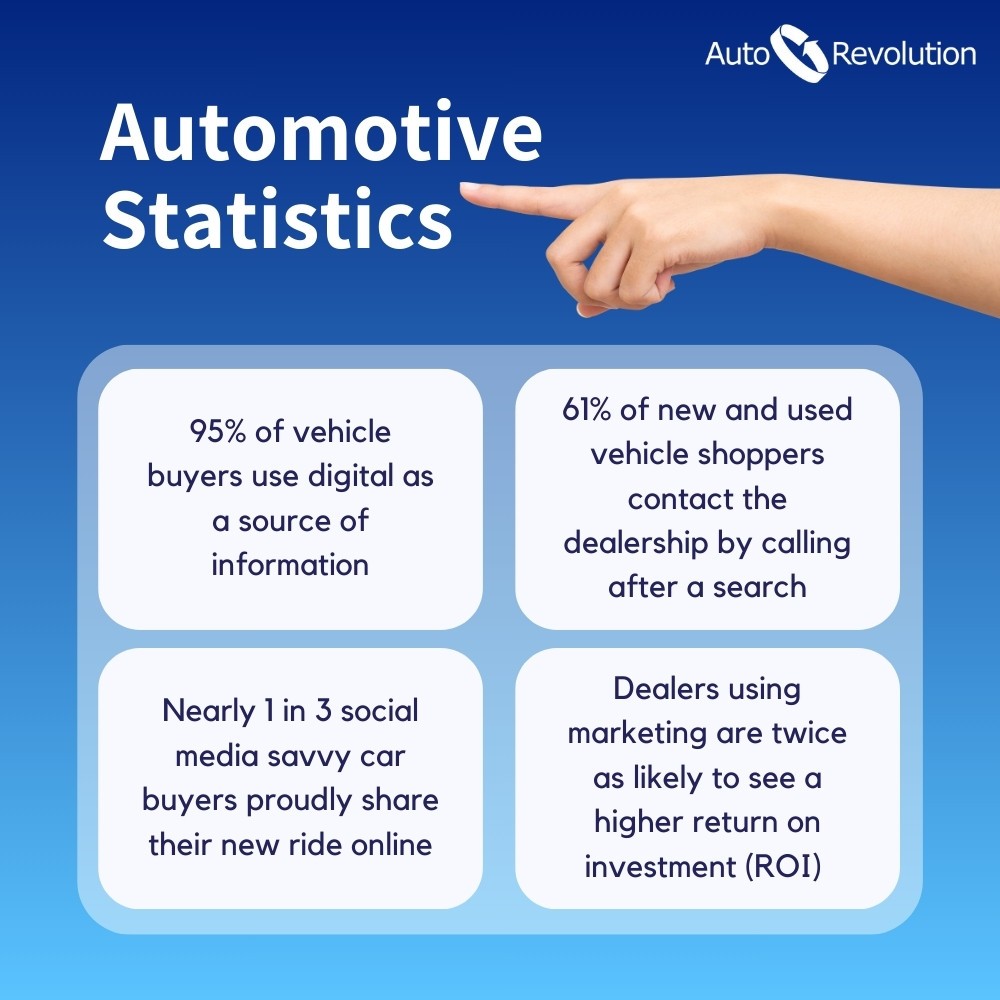Kollective Automotive Group Fundamentals Explained
Kollective Automotive Group Fundamentals Explained
Blog Article
Some Of Kollective Automotive Group
Table of ContentsAn Unbiased View of Kollective Automotive GroupThe Definitive Guide to Kollective Automotive GroupWhat Does Kollective Automotive Group Mean?The smart Trick of Kollective Automotive Group That Nobody is Talking AboutThe Ultimate Guide To Kollective Automotive GroupKollective Automotive Group - Truths
Reliable advertising and marketing approaches upfront have always been vital whenever one is considering purchasing a new vehicle. The more favorable the public understanding of a certain vehicle maker, the better the opportunities its dealership will certainly have in not only making the last sale; yet additionally, following it up with top quality fixing services.Sharp dealerships know exactly what their consumers want and require better than any individual else operating in the area. In a really true sense, company relations between domestic makers and their many dealers have actually not always been specifically amicable. Much of those service disagreements in between them stemmed from lasting disputes usually associated to such things as granting geographical areas.
the expanding numbers of contending affiliated franchise business within that very same assigned area. Those exact same suppliers additionally ended that if cars and truck manufacturers lowered the variety of their associates, within that very same set district, that new cars and truck sales volume for those remaining dealers would definitely raise considerably. Nonetheless, couple of manufacturers thought it.
4 Easy Facts About Kollective Automotive Group Shown

Such activities sent out a positive message to prospective purchasers. The expanding variety of brand-new dealers offering their brand of vehicle within a tiny district should imply that the supplier, in concern, not just creates high quality lorries; but also, that the growing demand for its numerous designs led business officials to open additional outlets to better serve the needs of the public.
That had not held true, before the First Globe Battle, when most of domestic cars and truck manufacturers immediately renewed their dealership franchises at the end of the fiscal year. land rover brooklyn. Automatic revival managed a particular degree of service safety and security especially for reduced volume representatives. Nonetheless, franchise revival assurances like that had just about gone away by 1925 as automobile manufacturers regularly ended their the very least successful electrical outlets.
Unknown Facts About Kollective Automotive Group
Such callous treatments just softened after the Second Globe Battle when some domestic automakers started to extend the length of franchise business agreements from one to five years. Carmakers may have still scheduled the right to end contracts at will; however, several franchise agreements, starting in the 1950s, included a new stipulation aimed directly at one more just as annoying issue particularly protecting dealer sequence.
Not particular as to what they ought to do to fight this growing threat, Detroit's Big 3 decided to conduct company customarily. roger pittman. They reasoned that if their existing organization strategies proved ineffective, then they could simply upgrade their operations to much better fit their requirements in the future. That type of service believing appeared qualified specifically in the 1970s and 1980s
One continual resource of irritability in between dealers and car manufacturers worried the role suppliers ought to be playing in their firm's decision-making procedure. Throughout the very first half of the 20th century, legions of accounting professionals and program supervisors had rubber-stamped almost all decisions approved by their specific Boards of Directors. These program heads, with the solid support of their particular boards, believed that they recognized what was finest for their affiliates.
More About Kollective Automotive Group
The new, busy worldwide market postured a large array of phenomenal new financial and financial obstacles never pictured by Detroit's extremely traditional top management before. Particularly, the various service circumstances that occurred at the time of the Centuries would have been much less extreme had Detroit's Big 3 embraced a much more positive organization position when they had the opportunity to do just that in the 1970s and 1980s.
Generally, Detroit's Big Three rejected to acquiesce to their growing needs by their many outlets for higher freedom and more input on the business decision-making procedure itself. Its board participants even presumed regarding classify some of the dissenting dealerships as "abandoners." In their minds, it was merely a matter of principle and custom.
The tiniest assumption of corporate weakness, consequently, could motivate unsubstantiated rumors worrying the future prospects of those cars and truck suppliers. Detroit's Big Three made it quite clear that it would not tolerate such actions. Detroit car giants firmly insisted that their lots of representatives need to attempt whenever feasible to resolve any unfounded service rumors that could spread discord amongst their rank-and-file.
Some Ideas on Kollective Automotive Group You Need To Know
Recognized for its clever use capital, this brand-new globally entrepreneurial spirit sanctioned open conversation amongst suppliers, marketing experts and suppliers. Under this more open-end arrangement, each participant provided its know-how to the others with the full purpose of producing the finest possible items at the least expensive cost. No person firm dominated that team's internal circle.
Some type of financial assistance, possibly in the type of substantial, direct aids, could be quite in order here. Nonetheless, absolutely nothing took place. That was most regrettable in that the absence of direct economic assistance by Detroit's Big 3 did not help to boost new auto sales in the least
The 1990s saw other pushing financial issues come forward - https://sandbox.zenodo.org/records/266185. Most of those problems fixated the growing requirement of a lot of dealers to preserve respectable earnings degrees in the center of an ever-dwindling neighborhood market. That problem was intensified even further by the urgency placed on Detroit's Big Three to better handle the many complaints lodged versus their electrical outlets by disgruntle consumers

Kollective Automotive Group - Truths
The truth that suppliers rarely won in the courts may have made up their hesitation to go after that particular option. Actually, most courts preferred makers over dealerships declaring that business bad moves, typically, originating from the inappropriate actions of the suppliers themselves, made up their existing monetary situations.
Also those merchants obstructed by legit franchise business restrictions, appreciated a specific quantity of business freedom when it concerned acquiring and distributing their product and services. That was not true for the bulk of automobile dealers whose manufacturers repetitively challenged every service move they made. Those arbitrary, and sometimes, counter check intuitive policy adjustments placed local car dealerships in a very tenuous organization scenario as they make every effort to do the best point for their many customers.
Vehicle dealerships offer a series of services connected to the trading of cars. Among their main features is to work as middlemans (or middlemen) in between auto manufacturers and customers, buying lorries directly from the manufacturer and afterwards selling them to consumers at a markup. Additionally, they frequently supply funding alternatives for customers and will certainly aid with the trade-in or sale of a consumer's old lorry.
Lastly, the administrative department handles jobs such as organizing consultations and taking care of client records. With each other, these departments function to offer a smooth experience for cars and truck buyers. When purchasing an auto from a dealership, there are several documents you will certainly require to carry hand. Car dealers call for proof of insurance coverage before enabling any individual to drive off the lot.
Report this page